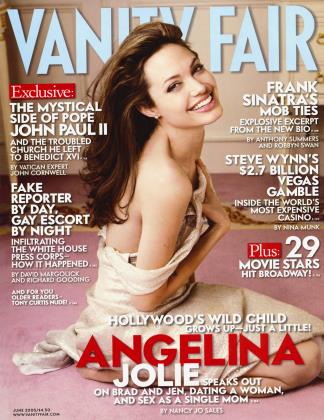Sign In to Your Account
Subscribers have complete access to the archive.
Sign In Not a Subscriber?Join NowAh, London in the spring—the glam-packed lobby of Claridge's, the latest royal gossip from Fleet Street's Young Turks, and, to top it all off, Europe's social elite exchanging tidbits and theories (sex crime or Mafia hit?) on the gruesome murder of financier Edouard Stern. The author shares all this and more
June 2005 Dominick Dunne Jillian EdelsteinAh, London in the spring—the glam-packed lobby of Claridge's, the latest royal gossip from Fleet Street's Young Turks, and, to top it all off, Europe's social elite exchanging tidbits and theories (sex crime or Mafia hit?) on the gruesome murder of financier Edouard Stern. The author shares all this and more
June 2005 Dominick Dunne Jillian Edelstein View Full Issue
View Full Issue






Subscribers have complete access to the archive.
Sign In Not a Subscriber?Join Now